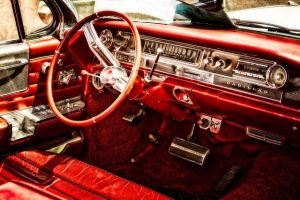
Buying a used car can often be a confusing and daunting experience because there are so many things you will need to consider. This is especially true when it happens to be the first time you are buying a car. The most important thing to do before making your decision is to give the car a physical check before you make your final decision.
Check the form of the car
- The car should be on level ground while you check it out: this will enable you to clearly examine the tires to see if anything is sagging.
- Check the paint job: take note of any scratches, dents, or rust spots. The car should be clean, so you can clearly see the paint condition. Examine the car from end to end to see if there is any waviness which indicates paint work and run your hand along the joints between panels to check for roughness that indicates masking tape residue.
- Check the condition of the body and the trunk: there should be no rust or water entry due to holes or cracks.
- Check the tires: they should match and be evenly worn. Look at the surface of the tire for feathering, which indicates bad alignment.
- Avoid a frame-damaged car: check the fenders to see if they have been realigned or replaced. This is indicated by scratch marks on the bolt head at the top of the fenders.
- Examine the exhaust system or under-body rust: black spots on the exhaust indicate leakage. Any greasy grime as you check the exhaust with your finger indicates a problem. Any white vapor when you turn the car on (in a warm climate) is not a good sign.
Check the functioning of the car
The next thing you need to do is to check to see if all the working parts are in good condition, for example, the brakes, the engine, the odometer, etc. You can go with a trusted friend or a mechanic to help you do these if you don’t know much about cars.
Reaching a decision
- Go with a person who knows cars: take someone that knows enough about cars along before making your decision. You can hire a mechanic with good reviews to help you with the inspections.
- Check out the history of the car: this should give you an idea of the performance, problems, and previous repairs of the car. Some establishments can provide you with a free VIN check. This will help you uncover any costly problems and hidden damages, compare prices and get the best insurance and finance deals, and so much more.
- Take notes: take note of all damaged parts that will need replacement. Call your auto parts store to check for the availability of those parts and how much they cost. This will enable you to make an informed decision on the price to offer for the car.
- Make a bargain: do not immediately agree to the asking price of the car. Feel free to make a reasonable price offer.










